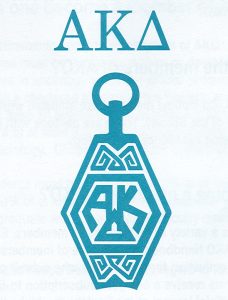Jun 14
26
Kevin Douglas – Graduate Teaching Assistant
 Kevin Douglas graduated Magna Cum Laude from Wichita State University with a B.A. in Psychology with a certificate in Community Psychology. His research interests include: Family & Child Health, Social & Political Factors that influence Development, Social Inequality, and Prevention/Early Intervention Programs. During his time as a research assistant at Wichita State University he worked in the Optimal Youth Development Lab. His team examined the efficacy of the Second Step Program, a skills based program for adolescents that aims to prevent social problems such as bullying, drug use and gang involvement.
Kevin Douglas graduated Magna Cum Laude from Wichita State University with a B.A. in Psychology with a certificate in Community Psychology. His research interests include: Family & Child Health, Social & Political Factors that influence Development, Social Inequality, and Prevention/Early Intervention Programs. During his time as a research assistant at Wichita State University he worked in the Optimal Youth Development Lab. His team examined the efficacy of the Second Step Program, a skills based program for adolescents that aims to prevent social problems such as bullying, drug use and gang involvement.
Jay Dufoe – Graduate Teaching Assistant/Undergraduate Advisor
Jay Dufoe graduated from UMKC in 2014, with a B.A. in Sociology with an Anthropology minor. Although he’s still looking for the specific question, his Graduate school focus will be on corporations and how as a society, we have allowed them to become so powerful. In addition to his GTA responsibilities, Jay is also the undergraduate academic advisor.
Joshua King – Graduate Teaching Assistant
 Joshua King received his B.A. in Social Sciences from Webster University in 2008. His thesis is centered on predictive models of pro-environmental behaviors, and his work generally engages issues of reflexivity and negotiations of contested meaning. Professionally, Joshua has worked as a consultant in nonprofit administration and as a technical adviser in economic development. He currently assists in teaching Statistics and Introduction to Sociology.
Joshua King received his B.A. in Social Sciences from Webster University in 2008. His thesis is centered on predictive models of pro-environmental behaviors, and his work generally engages issues of reflexivity and negotiations of contested meaning. Professionally, Joshua has worked as a consultant in nonprofit administration and as a technical adviser in economic development. He currently assists in teaching Statistics and Introduction to Sociology.
Seth Merritt – Graduate Teaching Assistant
 Seth Merritt is a graduate assistant for the department of Sociology. He got his Bachelor’s degree in Sociology from Missouri State University in May 2012. Currently, he is underway on a mixed methodological thesis analyzing the implementation of Google Fiber in Kansas City by seeking answers to three questions: why did Google choose to implement their service in Kansas City, what effects might this technological innovation have on the digital divide here, and how are power dynamics created, maintained, and changed in the discursive process between Google and its audience in Kansas City?
Seth Merritt is a graduate assistant for the department of Sociology. He got his Bachelor’s degree in Sociology from Missouri State University in May 2012. Currently, he is underway on a mixed methodological thesis analyzing the implementation of Google Fiber in Kansas City by seeking answers to three questions: why did Google choose to implement their service in Kansas City, what effects might this technological innovation have on the digital divide here, and how are power dynamics created, maintained, and changed in the discursive process between Google and its audience in Kansas City?



